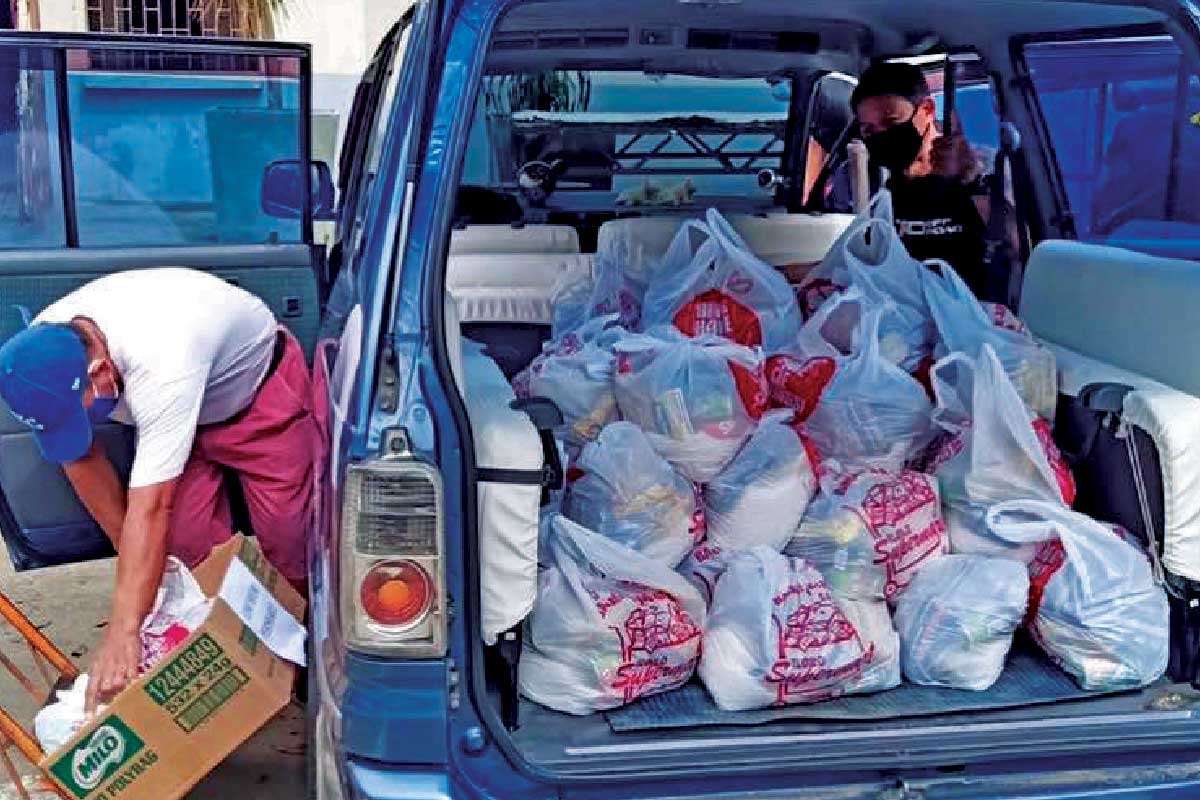
By Francis Allan L. Angelo and Joseph B.A. Marzan
COVID-19’s impact on the local economy has forced local governments and business groups to find ways to sustain employment while curbing the spread of the disease.
Over the weekend, Iloilo City Mayor Jerry Treñas said he will meet with the private and health sectors today, June 14, 2021, to get their recommendations on balancing the economy and public health.
Treñas said the loss of jobs because of the Modified Enhanced Community Quarantine (MECQ) is taking toll not only on residents but the city government as well.
Under Executive Order No. 50, as amended, restaurants are allowed to operate only on take-out basis, and are strictly prohibited from providing dine-in services to customers.
The edict, along with other issuances by national and local authorities, are aimed at curbing the spread of the coronavirus disease 2019 (COVID-19) in the country.
“We need to study together the possibility of allowing more establishments to open despite the surge. Many are already affected and need to work. We cannot sustain them with food assistance. We cannot allow this to go on. Many are complaining they have no work, no income and no food,” Treñas said.
The MECQ might be extended until end-June if the national government approves the city government’s request.
A group of hotel, resorts, and restaurant operators and owners echoed Treñas’ observation even as they asked the local government to allow dine-ins under the MECQ status.
The Iloilo Hotels, Resorts and Restaurants Association (IHRRA) said 50 percent of their members-establishments have closed when the MECQ took effect end of May 2021.
IHRRA currently only has 65 members, as many of its hotel members have transferred to the city’s Meetings, Incentives, Conference, and Exhibitions (MICE) alliance established by Senator Franklin Drilon.
IHRRA president Mary Ann Matiling said 80% of their members are restaurants while 20 percent are hotels.
Matiling said 90 percent of their income were lost when the MECQ took effect, and the situation is not enough to maintain their operations.
“Pagsulod naton sa MECQ [status] and when the Executive Orders 41, 45 and 50 were implemented which is ‘no dine-in’—medyo daku-daku gid ang impact sa amon industry. It’s about 90% loss. In fact, out of the 65 [members] 50% gid ini ang nag-close…nag-decide na gid lang nga mag-close. Even if you open for takeout, it cannot cover your operating expense,” Matiling told Aksyon Radyo-Iloilo.
Matiling said that between 2018 and 2019, the city granted permits to 1,300 food establishments within the city, and with a total of 3,000 food establishments operating as of that time.
When the COVID-19 pandemic hit, all food establishments were affected, including caterers primarily “because they were first in line” and around 80 percent of IHRRA’s member restaurants.
If food establishments had at least 5 workers, up to 15,000 workers in the city may have been displaced. The number could swell to 30,000 if small eateries are included.
Matiling said some workers were lucky to get help from their employer and the city government.
But this cannot counter the fact that many in the restaurant and hotel industry were affected by the pandemic since March 2020.
“There are others who are lucky enough, who are employees of a restaurant and living in a barangay with an active community and can get allocations because the mayor is sending rice and canned goods. But of course, there are also owners helping their workers and giving them assistance. With all of this, we cannot discount the fact that there are many who feel difficult at this time,” Matiling said
She also narrated their slow reopening during the permissive General Community Quarantine in 2020. Many were able to reopen dine-in services at capacity, given that their members were “more resilient” due to their size.
She also cited one of their members who converted its business from a “kakanin” (rice cake) business to feeds business after closing their stores in malls due to pandemic-related restrictions and closures.
By the time food establishments were allowed at 50 percent capacity, she said that all of their members had to reopen as they were already suffering 60 percent loss.
They were able to restore 80 percent of their operations after dine-in services returned to full capacity with minimum health protocols. But hotels still bore the brunt of the pandemic due to related travel restrictions.
Regarding hotels, Matiling said bigger hotels somehow survived because of their resources.
Now that the city returned to MECQ, Matiling said their members suffered up to 90 percent in losses, prompting some 50 percent of their members to close as take-out services could not cover for operating expenses.
COMPLIANCE
As part of the city’s COVID Team, the IHRRA has been actively working with Iloilo City Mayor Jerry Treñas and Compliance Team chief Nestor Canong on any and all strategies.
Matiling said that they have informed the city of the pandemic plight not only of their members, but also allied establishments which have been feeling their losses as well.
“I’m closely coordinating with the mayor’s office, and with sir Nestor with the Compliance Team because they are also asking. I just said that we have huge losses. In fact, we’ve been talking to some of the owners and they told me they felt sad because they don’t know what to do anymore. They cannot also give work to their employees,” said Matiling.
Treñas announced on Saturday that he would be meeting with the business and health sectors today, June 14, mulling a possible reopening of the establishments on the city amid the MECQ.
IHRRA will join today’s meeting with the city government to discuss the effects of the MECQ and recommendations to keep businesses afloat.
Matiling said they are hoping that they will be allowed to open to dine-ins while following strict protocols.
While the business sector understands Treñas’s decision to impose strict protocols, Matiling said there is a need to balance the economy and public health as many people are out of work.
In Iloilo City, there have been 9,503 confirmed COVID-19 cases, with 2,331 active cases, 6,943 recoveries, and 228 deaths, based on data by the Department of Health-Region 6 (DOH-6) as of June 13.
Matiling committed that the IHRRA will follow “maximum health protocols” if they can be allowed to reopen to dine-in services, maybe up to 30 percent capacity.
Department of Trade and Industry’s Memorandum Circular No. 21-15 issued on April 30, 2021, however, stated that food establishments in areas under MECQ can only reopen to 10 percent.
She hopes that they can be able to reach an agreement to reopen to indoor dining even at a limited capacity.
“It will depend on our meeting on Monday. We are also hoping that we can reopen, but with maximum health protocols. If they agree, we start it with different levels, if cases are really high, we could open with 30 percent dine-in, because the IATF [guidelines] allow that. Right now, I would understand the mayor’s decision in the past months because hospitals are full. But with the current situation where the economy is in a balancing act, I’m hoping that when we open, we have to follow the protocols,” she said.
Meanwhile, Iloilo City is expected to remain under MECQ from June 15 to 30, pending a resolution by the national Inter-Agency Task Force for the Management of Emerging Infectious Diseases (IATF-MEID).
LIQUOR BAN, CURFEW EXEMPTION
Meanwhile, the Philippine Chamber of Commerce and Industry-Boracay asked the Aklan provincial government to exempt their sector from the liquor ban and curfew on the island-resort.
In a letter to Aklan Governor Florencio Miraflores, the group said the exemption will attract tourists to the island and spur the local economy.
The liquor ban was imposed on Boracay Island because of rising COVID-19 cases in Aklan. The curfew takes effect from 10 pm to 5 am.
PCCI-Boracay also asked for RT-PCR testing on all persons entering the island, including residents of Malay and other Aklan towns. (With a report from GMA News)






















